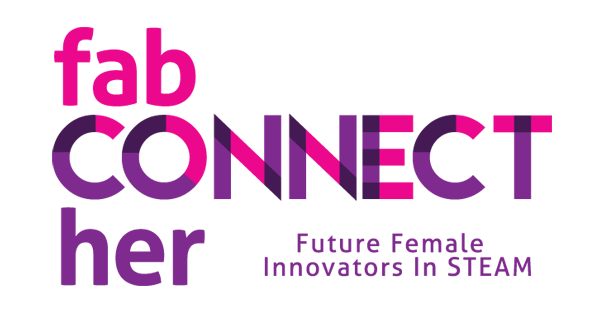Spain Workshop
- Date: April 26, 2025
- Location: FabLab León, San Andrés del Rabanedo, León
- Organised by: Fundación TMA - Fab Lab León
- Participants: 23
Agenda of the event:
11:30 Reception
11:35 Welcome & Presentation of the Project
11:40 Guest speaker & Role Model: Maria Lorenzo: “Cómo me pasé al lado oscuro”
12:00 Case Study Analysis and Glosary Cards
12:15 Collective activity: Feedback round
12:25 Closing and evaluation
Short summary of the event:
On April 26, we hosted a new FabConnectHer workshop at FabLab León, focused on role modelling and mentorship. The session brought together girls, families, and mentors in a shared space centered around trust, empathy, and the transformative power of guidance.
We were honored to welcome María Lorenzo as our special guest speaker — a former FabLab León participant who gave an inspiring talk about her personal journey in the world of STEAM. Although María is currently pursuing a degree in Spanish Philology, she shared how her early engagement with STEAM projects helped her develop essential skills — such as critical thinking, curiosity, and creative problem-solving — which are also highly valuable in other fields, including Artificial Intelligence, where linguistic profiles are increasingly in demand.
Following her talk, the group took part in a mentoring activity based on case study analysis, using key concepts from the FabConnectHer mentoring glossary. Participants worked in intergenerational groups: each received a set of cards with terms such as impostor syndrome, safe learning environment, resilience, and leadership. The mentees reflected on situations where they had encountered these concepts in real life, while adult participants acted as mentors, guiding the discussion and encouraging open dialogue.
The workshop concluded with a collective activity to practice empathetic listening and recognize signs of resilience in the stories shared. This moment helped deepen group connections while also offering practical tools to strengthen communication and emotional support within mentoring relationships.
Outcomes of the event & WP3 evaluation:
- Audience composition: The event brought together a mixed audience of students (41%), parents (47%), and educators (18%), fostering a multigenerational dialogue around STEAM and mentorship.
- Usefulness of the event: Participants rated the usefulness of the event very highly (4.9/5), suggesting that the format, content and speaker made a significant impact.
- Most valued element: The majority of respondents (15 out of 16) highlighted María Lorenzo’s talk as their favorite part of the workshop. Her story was perceived as inspiring and relevant, bridging STEAM and humanities through real-life experience.
- Ease of applying the resources: The mentoring materials and glossary terms were considered moderately easy to apply, with an average score of 3.8/5. This suggests that the concepts were accessible, though some participants may need further support or examples for implementation.
- Agreement with key workshop goals: On a scale from 1 (disagree) to 5 (totally agree), participants expressed strong alignment with the intended outcomes:
○ “I feel more inspired to explore STEAM areas” – 4.2
○ “I now understand concepts like leadership, confidence, or empowerment better” – 4.4
○ “I feel I belong to a community that supports girls’ talent in STEAM” – 4.2 - Future engagement: Several participants expressed interest in continuing their involvement:
○ 5 want to join as mentees
○ 1 as a mentor
○ 10 would like to stay informed about the project
○ None selected “I do not wish to participate”, indicating overall enthusiasm for FabConnectHer. - Emotional impact: In a final word cloud, participants described the experience using terms such as motivada, interesante, empoderar, cómoda, inspirador, and confiada, underscoring the workshop’s emotional resonance and inclusive environment.

